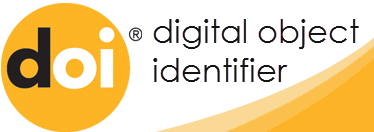পানাহার : ইসলাম ও চিকিৎসা বিজ্ঞানের আলোকে একটি পর্যালোচনা|Dietary Habit : An Analysis in the Light of Islam and Medical Science
DOI:
https://doi.org/10.58666/kh5nr193Keywords:
food, public health, medical science, Islam and health, dietary habit, খাদ্য, পানাহার পদ্ধতি, গণস্বাস্থ্য, চিকিৎসা বিজ্ঞান, ইসলাম ও স্বাস্থ্যAbstract
Allah has created the human race as the greatest and best of creations. This beautiful body is a special niyamah from Allah. Thus Islam has plenty of directives for the health and well-being of the human body. Islam has given utmost importance for the proper maintenance of this health. In this regard, Islam has given us directives about healthy food and fluids that are harmful for the body. In this analytical article, the practical guidance and methods adopted by the Prophet (PBUH) have been highlighted regarding the food habits. This article, developed in analytical and narrative manner, proves that food habit in Islam are in accordance with health requirements of modern medical science recommendations. Therefore a person may live a healthy life through following the directives of Islam regarding food habits and lifestyle.
সারসংক্ষেপ : আল্লাহ তাআলা সৃষ্টির সেরা জীব হিসেবে মানুষকে সৃষ্টি করেছেন সর্বোত্তম আকৃতি ও গঠনে। এই সুন্দর দেহ সৌষ্ঠব আল্লাহর পক্ষ থেকে দেয়া বিশেষ নিয়ামত। এ কারণে স্বাস্থ্যের সঠিক রক্ষণাবেক্ষণের জন্য ইসলাম অত্যন্ত গুরুত্ব দিয়েছে। স¦াস্থ্য ও সুস্থতার মূল উপাদান পানাহার। ফলে একজন মানুষের পানাহার পদ্ধতি কেমন হবে এবং কোন খাবার ব্যক্তির জন্য সুস্থতার নিয়ামক ও কোন খাবারে মানব দেহের জন্য ক্ষতিকর উপকরণ রয়েছে ইসলাম তার নির্দেশনা প্রদান করেছে। এ প্রবন্ধে পানাহারের ক্ষেত্রে রাসূলুল্লাহ স. এর বাস্তবসম্মত নির্দেশনা ও অনুসৃত পদ্ধতি তুলে ধরা হয়েছে। বিশ্লেষণ ও বর্ণনামূলক পদ্ধতিতে রচিত এ প্রবন্ধ থেকে প্রমাণিত হয়েছে যে, ইসলাম নির্দেশিত পানাহার পদ্ধতি আধুনিক চিকিৎসা বিজ্ঞানের দৃষ্টিতে সম্পূর্ণরূপে স্বাস্থ্যসম্মত ও যুক্তিগ্রাহ্য। অতএব, ইসলাম নির্দেশিত পদ্ধতি অনুসরণ ও অনুকরণের মাধ্যমে একজন ব্যক্তি সুস্থ ও স্বাস্থ্যকর জীবনযাপন করতে ও পরবর্তী প্রজন্ম উপহার দিতে সক্ষম হবে।
References
Al-Qurān al-Karīm
Abū Dāūd, Sulaymān ibn al-Ashʻath al-Sijistanī. 2006. Al-Sunan. Translated by: Dr.A.F.M. Abū Baker Siddique. Dhaka: Islamic Foundation Bangladesh.
Al-Baihaqī, Abū Bakr Ahmad. 1410H. Shuʻab al-Imān. Beirut: Dār al-Kutub al-ʻIlmiyyah.
Al-Bukhārī, Abū ‘Abd Allāh Muḥammad ibn Ismā‘īl. 2003. Al-Jamiʻ As-Sahīh. Translated by: Translation Board. Dhaka: Islamic Foundation Bangladesh.
Al-Jawziyyah, Ibn al-Qayyim. 1990. Al-Tibb Al-Nabawī. Beirut: Dār al-Kitāb al-ʻArābī.
Al-Jawziyyah, Ibn al-Qayyim. 1994. Zād Al- Mā‘ad. Beirut: Muassasah al-Risālah.
Al-Mahallī, Jalāl al-Dīn Muhammad ibn Ahmad and Al-Suyūtī, Jalāl al-Dīn ʻAbd al-Rahmān ibn Abī Bakr. 2010. Tafsīr al-Jalālayn.Translated by: Abd al-Gaffar and Muhammad Abūl Kalam Masum. Dhaka: Islamia Qutubkhan.
Al-Tabarī, Abū Jaʻfar Muhammad ibn Zarīr. 2000. Jamiʻ Al-Bayān Fī Tafsīr Al-Qurān.Translated by: a group of translator. Dhaka: Islamic Foundation.
Al-Tirmidī, Abū ‘Isā Muḥammad ibn ‘Isā. 1992. Sunan Al-Tirmidī.Translated by: Farid Uddin Masud. Dhaka: Islamic Foundation Bangladesh.
Bondia-Pons I et al. 2007. “Moderate consumption of olive oil by healthy European men reduces systolic blood pressure in non-Mediterranean participants”. The Journal of Nutrition. 137(1):84-87.
Callow, E.H.1952. Food Hygiene. Cambridge: Harvard Univ. Press.
CDC: Centers for Disease Control and Prevention. 2018. Why Wash Your Hands. https://www.cdc.gov/handwashing/why-handwashing.html. Browsed on 1st July, 2018
Covas MI et al. 2006. "The effect of polyphenols in olive oil on heart disease risk factors: a randomized trial". Annals Internal Medicine. 2006 Sep 5;145(5):333-341.
Dr. Graham Burgess, Microbiologist. James Cook University, Queensland, Australia.
Ellen Muehlhoff, Anthony Bennett, Deirdre McMahon. 2013. Milk and dairy products in human nutrition. Food and Agriculture organization of the United Nations.
FIMA, Federation of Islamic Medical Association Journal. 2014. FIMA year Book 2014.
Ibn Kathīr, Imām Al-Dīn Abū al-Fidā’ Ismāʻil. 2009. Tafsīr al-Qurān al-Azīm. Translated by: Dr. Muhammad Mujibur Rahman. Dhaka: Tafsir Publication Committee.
Ibn Mājah, Abū ʻAbdullah Muhammad ibn Yazīd al-Rabīʻ Al- Qazwīnī. 2002. Al-Sunan. Translated by: Translators. Dhaka: Islamic Foundation Bangladesh.
Jeddah Dawah Center. 2018. Why Pork and Blood are forbidden in Islam. http://jdci.org/104-ARTICLES/ARTICLES-VIEW/Article Id/43/ Why-Pork-and-Blood-are-Forbidden-in-Islam, browsed on 01/07/2018.
Juan ME et al. 2006. "Olive fruit extracts inhibit proliferation and induce apoptosis in HT-29 human colon cancer cells". The Journal of Nutrition. 136(10):2553-2557.
Knowles, Elizabeth (Ed.). 2005. The Oxford Dictionary of Phrase and Fable (2 ed.). Oxford University Press.
Kogevinas, Manolis et al. 2018. "Effect of mistimed eating patterns on breast and prostate cancer risk (MCC‐Spain Study)". International Journal of Cancer. First publish July 17, 2018. pp1-11. https://onlinelibrary.wiley.com/doi/full/10.1002/ijc.31649
Lunxin Li et al. 2016. "Afternoon Napping and Cognition in Chinese Older Adults: Findings from the China Health and Retirement LongitudinalStudy Baseline Assessment". Journal of the American Geriatrics Society. Vol. 62, Issue-2, Pp- 373-380. https://onlinelibrary.wiley.com/doi/epdf/10.1111/jgs.14368
Lutfor Rahman, Mohammad. (Edited) 2016. Health education in Islam. Dhaka: Islamic Foundation Bangladesh.
Mahmood, Hakeem Mohammad Chughtai Tariq. 2006. Excellent Example of prophet Muhammad (pbuh) and Modern science.Translated by: Engineer Sultan Ahmad Asif. Lahore: Ubqari Publications.
Miraculous Qurān. 2018. http://miraculousQurān.blogspot.com/ 2009/08/surah-al-baqarah-2173-wisdom-behind.html
Muazzam, Dr. M. Ghulam. 2010. Science in Qurān. Dhaka: Gyan Bitaroni.
Muslim, Abū al-Husain Muslim Ibn Hajjāj Al-Qushairī Al-Nishāpūrī. 2003. Al-Musnad al-Sahīh. Translated by: Bangladesh Islamic Centre. Dhaka: Bangladesh Islamic Centre.
Panipati, Qadi Thanaullah. 2009. Al-Tafsīr al-Mazharī. Translated by: Maulana Taleb Ali. Dhaka: Hakimabad Khanka-e-Mozaddedia.
Pooja Makhija. 2017. "Never skip dinner, just eat light". The Times of India. Nov. 15, 2017. https://timesofindia.indiatimes. com/life-style/health-fitness/diet/Never-skip-dinner-just-eat-light/articles how/33695508.cms
Rolls, Barbara J, Elizabeth A Bell Michelle L Thorwart. 1999. "Water incorporated into a food but not served with a food decreases energy intake in lean women". The American Journal of Clinical Nutrition, Volume 70, Issue 4, 1 October 1999, Pages 448–455, https://doi.org/10.1093/ajcn/70.4.448
Shamsī, Dr. Mohammad Shakeel. 2016. Tibb-e-Nabawi . India.
USDA National Nutrient database for Standard Reference-2018
WHO - World Health Organization. 2016. Global Health Observatory (GHO) data Report 2016. http://www.who.int/ gho/en/. Browsed on 1st July, 2018.
World Health Organization (WHO) Report 2016.
Downloads
Published
Issue
Section
License
Copyright (c) 2018 ইসলামী আইন ও বিচার | Islami Ain O Bichar

This work is licensed under a Creative Commons Attribution 4.0 International License.





